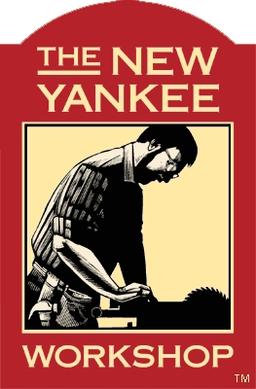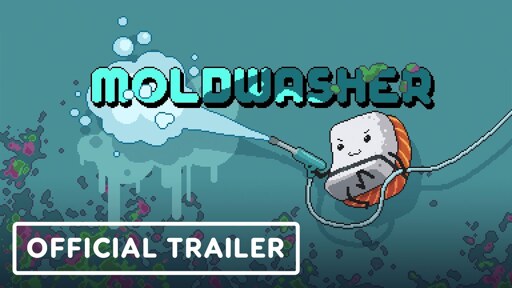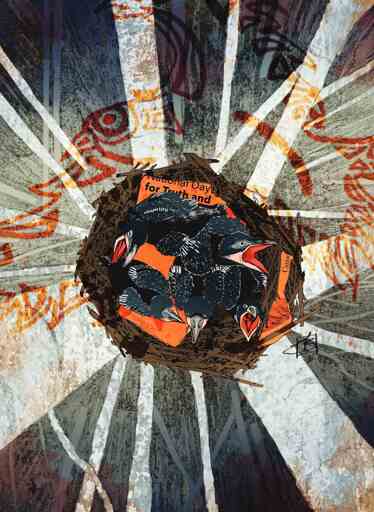Otter Raft
This is an alt account used for scheduling posts ahead of time. While I check notifications periodically, please contact me at @[email protected] for a faster response.
- 817 Posts
- 56 Comments

 5·3 days ago
5·3 days agoThank you! I’ve edited this into the post, and noted for next time!

 2·5 days ago
2·5 days agoTry enabling some optional filters in the settings. There are some for common annoyances

 3·7 days ago
3·7 days agoDepending on what you are zapping, you can likely add some wildcards to the URL portion to cover all the fandom sites for example. You might even be able to edit it to just
fandom.comto cover all the fandom sites

 4·7 days ago
4·7 days agoI actually use lemmy-schedule for these posts, which seems to do it in this format. Maybe I can add the other communities to the post body to make discoverability easier :)

 4·7 days ago
4·7 days agoI’ll edit the title further to remove the “Canadian”

 2·8 days ago
2·8 days agoYep, the companies are pushing AI models as being a “fair” and “unbiased” alternative to human workers. In reality LLLMs are going to be biased depending on the training data

 2·10 days ago
2·10 days agoAgreed with all of the above, and especially the point about the interior. When we’ve had people come to visit, that’s the part we often hear positive comments about.
I haven’t had a chance to try the tree area yet since it’s been closed the times when I travelled through, but I already love the water areas.

 1·12 days ago
1·12 days agoWe do manufacturer some cars
The government justified its “tariff fortress” by pointing to China’s extensive industrial policy, such as subsidies, that artificially lower production costs. The tariffs were claimed to protect domestic producers by offsetting the cost advantage enjoyed by Chinese EV manufacturers.

Specifically, if the “flying rivers” of transpiration during dry seasons are from deep water tables or shallow groundwater:
The Amazon is the world’s largest tropical forest, home to unmatched biodiversity and one of the planet’s longest rivers. Besides the Amazon River, the Amazon rainforest also features “flying rivers:” invisible streams of vapour that travel through the atmosphere, fuelling rainfall both within the forest and far beyond its boundaries.
The forests play a central role in this system. Much of the moisture that rises into the atmosphere comes from transpiration. Trees pull water from the soil through their roots, transport it to the leaves and release it as vapour. That vapour becomes rainfall — sometimes locally, sometimes hundreds of kilometres away.
In the dry season when rain is scarce, up to 70 per cent of rainfall in the Amazon comes from this moisture-recycling generated by the forest itself. This raises a key question: where do the trees find the water to keep the cycle going during the driest months?
The results were surprising. Most water used for transpiration in the dry season did not come from deep reserves, but from shallow soil. In a year without extreme drought or floods, 69 per cent of transpiration on the hill and 46 per cent in the valley came from the top 50 centimetres of soil.
Our research also found that water stored in the shallow soil had fallen on land recently, specifically during the dry season. In other words, the forest rapidly recycles the rain: it falls, infiltrates shallow soil, is absorbed by roots and is released back into the atmosphere, fuelling new rainfall — right when the forest needs water most.
This is important because:
This delicate balance is threatened by deforestation. When forests are cut down, fewer trees release moisture into the air through transpiration, reducing the formation of local and nearby rainfall during the dry season.
Forest loss weakens the very system that sustains rainfall — the recycling of water through transpiration. Our study shows that embolism-resistant trees play a central role by quickly returning dry-season rainfall to the atmosphere, where it fuels new rainfall.
The message is clear: without the forest, there is no rain, and without rain, no forest. The quick recycling of dry-season rain keeps the Amazon alive through its driest months. It also plays a crucial role in triggering the return of the wet season. If the forest loses its ability to recycle this water, the entire hydrological cycle risks collapse.

 2·19 days ago
2·19 days agoThanks!
To be honest, I was hoping someone would link to the reference. Maybe the joke is how ridiculous this would be when spoken out loud vs. text

 1·1 month ago
1·1 month agoMaybe we can, if someone reached out? Depending on what other social media platforms he is using

 3·1 month ago
3·1 month agoPer capita as well but it varies by region, there is an interactive graph on the article

 2·2 months ago
2·2 months agoI hadn’t considered that this term is specific to some regions :)
Over here, I usually hear it when someone is referring to the few weeks at the start of a school year for elementary and high school kids. It’s right now for some parts of North America, or around late August / early September for others (ex. in my province in Canada) It’s often used for marketing and sales, but also in the context of child and educational psychology.

 3·2 months ago
3·2 months agoThat’s fair, personally I enjoy them when I go with friends. I get a chance to catch up with friends and enjoy the atmosphere, then head somewhere else for lunch/dinner. I thought this one might be fun for the free performances / games, and if it’s terrible then there’s always the rest of Burnaby Central Park
We can do all of those things outside an event too, but making plans attached to events helps in some way

 2·2 months ago
2·2 months agoHere is the xcancel version: https://xcancel.com/i/status/1950981195208204387
I had an error uploading the video to catbox, but I can try somewhere else if the xcancel link doesn’t work

 1·2 months ago
1·2 months agoI saw a video about the bench ramps, and they mentioned something important that I didn’t consider: they help with accessibility to move between the high sidewalk and the lower level path.

 5·2 months ago
5·2 months agoIn his letter Friday to Kosseim, Shamji said that nearly one-third of all home-care patients in the province had their data compromised.
https://www.cbc.ca/news/canada/toronto/data-breach-ontario-health-at-home-mpp-1.7572411
I couldn’t find specifics, but maybe you’ll be contacted now if you were affected?

 9·2 months ago
9·2 months agoI missed the link somehow, I’ve edited the post now. It’s open source (GPLv3).
They started as a startup, then shut down and open-sourced the project, and now it looks like they’re pivoting to something else

























I’m a user on Lemmy and I posted the direct link in the Vancouver community here. Something seems to have changed with how Mastodon displays threadiverse content, since this is the second time someone has complained about it from mastodon in the past week. I’m not sure what I can do to help with the formatting from my side.
For what it’s worth, you should be able to see all the content without logging in to Lemmy, or any other threadiverse platform for that matter